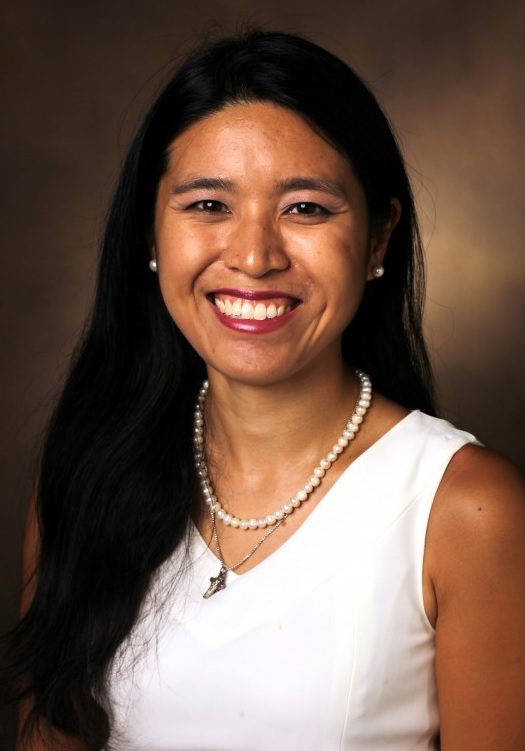Let us not put up barriers to treating each other with respect, calls Lealani Mae Acosta
 Imagine being an emergency room (ER) physician in the heart of New York City: not only are you on the frontlines caring for patients with covid-19, but you are also the head of the ER, entrusted with the safety of your staff, including obtaining appropriate personal protective equipment (PPE).
Imagine being an emergency room (ER) physician in the heart of New York City: not only are you on the frontlines caring for patients with covid-19, but you are also the head of the ER, entrusted with the safety of your staff, including obtaining appropriate personal protective equipment (PPE).
On a rare day off, you scout for extra PPE. Miraculously, you find a local hardware store that has some.
Wheeling your buggy to the parking lot, you are accosted by three young men. They hurl abuse. Your defenses do little to buffer their jeers because you’re not being targeted as a potential hoarder or price gouger. The derogatory comments consist of racial slurs and commands to “go back to China.” You are targeted because you are of Asian descent.
This is what I imagine Dr Edward Chew faced, whose story was reported in the New York Times.
Unfortunately, during this pandemic attacks against Asian people in countries where they constitute a minority are not isolated events. This group were subjected to discrimination for similar reasons in the 2002-03 SARS outbreak and are being targeted once again. In the US, for example, during the 2002-03 SARS outbreak, the Public Response Service through the Centers for Disease Control and Prevention recorded callers from the general public who expressed concerns about “working with Asians,” “living near Asians,” and, the most frequent concern, “fear of buying Asian merchandise.” Discrimination was seen against individual Asian people, businesses, and neighborhoods, not only against those of Chinese descent, but anyone who appeared Asian. At the height of SARS, the restaurants and businesses in Chinatowns and other Asian communities, usually bustling, sat empty as patrons eschewed them. Slander and hate messages were hurled at Asian individuals and organizations. Some commuters on public transportation would deliberately avoid sitting near anybody Asian.
Some people might think, “Of course we’re more tolerant, more civil now.” Yet, as covid-19 cases rose in countries such as the UK, Canada, the US, and France, Asian people were being targeted, blamed, and even beaten because they were easily identified as Asian, some potentially because of specifically wearing face masks.
An American website was launched to report a hate crime secondary to being Asian because of covid-19, STOP AAPI (Asian American Pacific Islander) HATE. It received more than 1100 incident reports in its first two weeks. In their analysis of the reports, the organization notes, “Asian Americans of different ethnicities are racially profiled; 61% of the reports are from non-Chinese.” A recent editorial in Nature highlights the threat to education, research, and science if stigmatization against Asian people continues to escalate.
As healthcare workers, we have much to worry about during the current pandemic. We worry about catching covid-19 and being symptomatic and hospitalized, or being asymptomatic, and unwittingly transmitting the virus to others, including our loved ones. The last thing we need is another fear like xenophobia, wasting precious mental energy. For those of Asian heritage working in medicine in a country where we are a minority, it is ironic that we fear being discriminated against in a discipline that emphasizes treating everybody—regardless of the demographic, socioeconomic, or ethnic category in which the patient happens to fall.
To those healthcare workers of Asian descent: you are seen, particularly those directly treating and caring for people with covid-19 (not, as some politicians and commentators have dubbed it, the “Chinese virus” or “Wuhan virus”). The Japanese phlebotomist with a foreign medical degree but no credentialing to practice, who feels helpless about not being able to do more—both in his adopted and home country. The Filipino nurse running to a code, who worries about insufficient PPE and the consequences of falling ill and being unable to send the monthly portion of her paycheck to family in the Philippines. The Korean ICU fellow, the first doctor in her family, overwhelmed by the lack of ventilators and the knowledge that her parents’ restaurant is struggling because of the slump in business. The Chinese physician obtaining PPE for his ER staff.
The common emotion behind what many Asian people may be experiencing right now and what drives those who discriminate is fear. Particularly behind a mask, it would be easy to depersonalize and, in essence, dehumanize, those deemed as “other.” Even as we don protective gear, let us not put up barriers to treating each other with respect.
Lealani Mae Acosta is an assistant professor in the Department of Neurology at Vanderbilt University Medical Center, Nashville, Tennessee.
Competing interests: None declared. Dr Acosta discloses that she is an Asian American.
